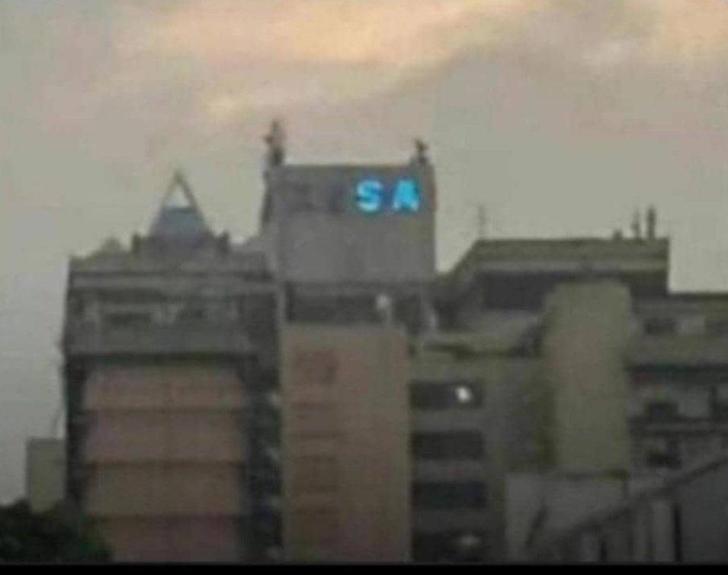News / Local
Zimbabwe's power crisis set to persist into 2025
7 hrs ago | Views

Zimbabwe's prolonged power outages, which have left ordinary citizens enduring hours without electricity, are expected to spill over into 2025 due to a lack of foreign currency needed for electricity imports. The country's energy deficit has deepened, with insufficient domestic generation exacerbated by a combination of factors, including low water levels at the Kariba Dam, worsened by drought conditions.
The Kariba Hydropower Plant, which has a total capacity of 1,050 megawatts (MW), is currently operating at less than 100 MW, significantly below its dependable capacity. This reduction in power generation has left the country struggling to meet the ever-growing demand for electricity. As a result, the already overburdened population faces even more severe load shedding, while businesses grapple with mounting losses due to their reliance on costly backup power sources like generators.
Zesa Holdings, the country's state-owned electricity supplier, reported that power generation as of the latest figures stood at 869 MW, with 695 MW coming from Hwange, 124 MW from Kariba, and 50 MW from independent power producers. Despite efforts to address the energy shortfall, such as importing electricity from South Africa and Mozambique, the crisis persists.
Last week, a nationwide blackout further highlighted the extent of the energy crisis, though Zesa officials attributed the outage to imbalances in power supply from international connectors. Zesa's executive chairman, Sydney Gata, has stated that there is no quick solution to the energy crisis, emphasizing the lack of foreign currency required to import electricity to fill the gap.
"More than 50% of our dependable capacity has been wiped out. This is the main reason behind load shedding," Gata explained during a press briefing. "The other factor is that power inputs to supplement the deficit are expensive and they demand foreign currency. We do not have enough foreign currency to make up for the deficit."
The energy crisis has placed significant strain on daily life and the economy, with citizens struggling to cope with the unpredictable power cuts. Businesses, in particular, are feeling the financial strain as they are forced to use expensive alternatives to maintain operations.
Despite previous claims by the government that power outages would end by 2025, Gata ruled out any imminent resolution, acknowledging the ongoing foreign currency shortage. In July, the government had projected the end of load shedding following the commissioning of the 300 MW Hwange power plant. However, Gata's recent statements indicate that while new power stations are under construction, it will take until mid-2025 for any substantial improvements to materialize.
As part of long-term plans to address the crisis, Zimbabwe is also considering the adoption of nuclear energy, with Energy and Power Development Minister Edgar Moyo announcing ambitious plans for nuclear power plants as a potential solution to the country's energy shortages.
The situation remains critical, with no immediate end in sight to Zimbabwe's crippling power cuts. The country's reliance on external electricity imports and the challenge of securing sufficient foreign currency continue to pose significant hurdles in addressing the national energy crisis.
The Kariba Hydropower Plant, which has a total capacity of 1,050 megawatts (MW), is currently operating at less than 100 MW, significantly below its dependable capacity. This reduction in power generation has left the country struggling to meet the ever-growing demand for electricity. As a result, the already overburdened population faces even more severe load shedding, while businesses grapple with mounting losses due to their reliance on costly backup power sources like generators.
Zesa Holdings, the country's state-owned electricity supplier, reported that power generation as of the latest figures stood at 869 MW, with 695 MW coming from Hwange, 124 MW from Kariba, and 50 MW from independent power producers. Despite efforts to address the energy shortfall, such as importing electricity from South Africa and Mozambique, the crisis persists.
Last week, a nationwide blackout further highlighted the extent of the energy crisis, though Zesa officials attributed the outage to imbalances in power supply from international connectors. Zesa's executive chairman, Sydney Gata, has stated that there is no quick solution to the energy crisis, emphasizing the lack of foreign currency required to import electricity to fill the gap.
The energy crisis has placed significant strain on daily life and the economy, with citizens struggling to cope with the unpredictable power cuts. Businesses, in particular, are feeling the financial strain as they are forced to use expensive alternatives to maintain operations.
Despite previous claims by the government that power outages would end by 2025, Gata ruled out any imminent resolution, acknowledging the ongoing foreign currency shortage. In July, the government had projected the end of load shedding following the commissioning of the 300 MW Hwange power plant. However, Gata's recent statements indicate that while new power stations are under construction, it will take until mid-2025 for any substantial improvements to materialize.
As part of long-term plans to address the crisis, Zimbabwe is also considering the adoption of nuclear energy, with Energy and Power Development Minister Edgar Moyo announcing ambitious plans for nuclear power plants as a potential solution to the country's energy shortages.
The situation remains critical, with no immediate end in sight to Zimbabwe's crippling power cuts. The country's reliance on external electricity imports and the challenge of securing sufficient foreign currency continue to pose significant hurdles in addressing the national energy crisis.
Source - the standard



































